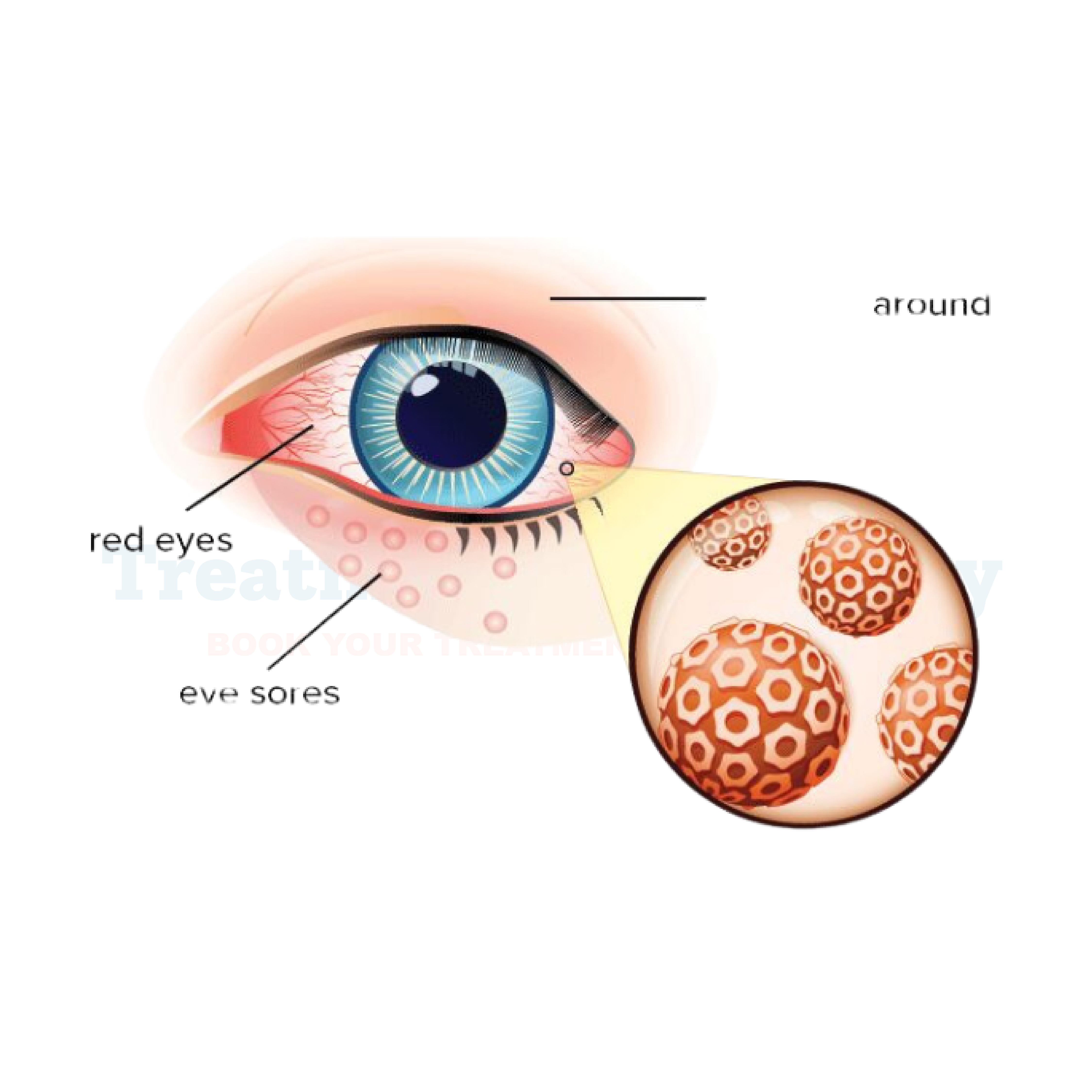A clear path to effective treatment and vision preservation awaits. Explore advanced treatment in Germany to minimize vision loss caused by Herpes Simplex Keratitis (HSK).
What is Herpes Simplex Keratitis?
Herpes Simplex Keratitis (HSK) is a common eye condition caused by the herpes simplex virus. It primarily affects the cornea and is one of the leading causes of vision impairment and corneal blindness worldwide. This condition can result in significant discomfort, blurred vision, and in severe cases, permanent vision loss without timely intervention.
Symtoms of Herpes Simplex Keratitis
Signs and symptoms of herpes simplex keratitis include:
Redness around the affected eye
Excessive tearing or watery eye
Pain or irritation in the eye
Sensitivity to light
Blurred or reduced vision
Side Effects of Herpes Simplex Keratitis
If left untreated, HSK can lead to severe complications that may affect your daily life. Key side effects include:
Causes of Herpes Simplex Keratitis
Understanding the causes of HSK can help in identifying and addressing the condition more effectively. Common causes include:
Diagnosis for Herpes Simplex Keratitis
Proper diagnosis is critical for confirming HSK and initiating effective treatment. An accurate diagnosis ensures the best approach to preserving your vision. Steps typically include:
Potential Treatment for Herpes Simplex Keratitis
Advanced treatment options focus on minimizing the infection's impact and preventing recurrences. Common treatments include:
Prevention and Management of Herpes Simplex Keratitis
While a recurrence is possible, proactive management can help reduce risk factors. Practical steps include:
Use antiviral medications as prescribed by your doctor to control outbreaks.
Protect your immune system by managing stress, sleeping well, and maintaining overall health.
Avoid touching your eyes and practice good hygiene to limit the spread of the herpes simplex virus.
Wear UV protection glasses to shield your eyes from harmful sunlight.
Schedule regular check-ups with your ophthalmologist to monitor eye health and prevent complications.
Why Choose Treatment in Germany?
Germany is internationally renowned for its advanced medical infrastructure and high standards of care. Here’s why it’s the ideal destination for managing Herpes Simplex Keratitis:
Conclusion
Don’t wait to address Herpes Simplex Keratitis. Start your path toward effective treatment and improved eye health with Germany’s world-class care. Choosing Germany for the treatment of Herpes Simplex Keratitis ensures access to unparalleled medical expertise and advanced healthcare systems. Patients can feel confident knowing they are in the hands of trusted specialists committed to delivering effective, personalized care. We’re here to guide you every step of the way.
👉 Contact us for further information and receive a complimentary consultation.


.webp)
 (1).webp)

.webp)
 (1).webp)


.webp)
 (1).webp)

.webp)
 (1).webp)
